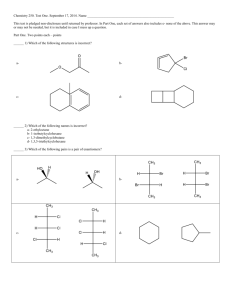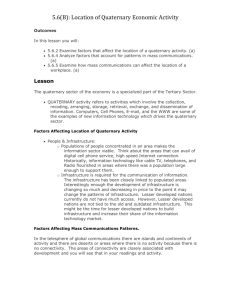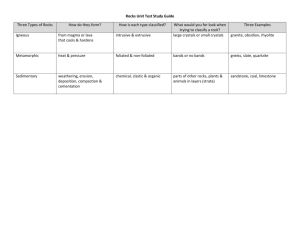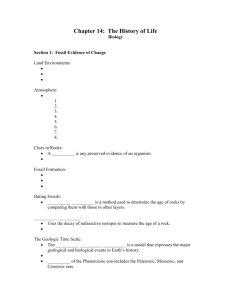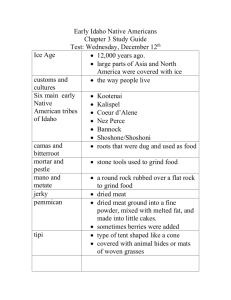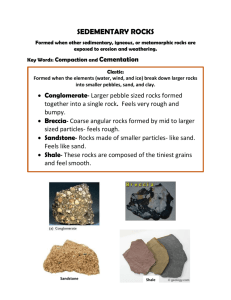Major Divisions of Geological Time
advertisement
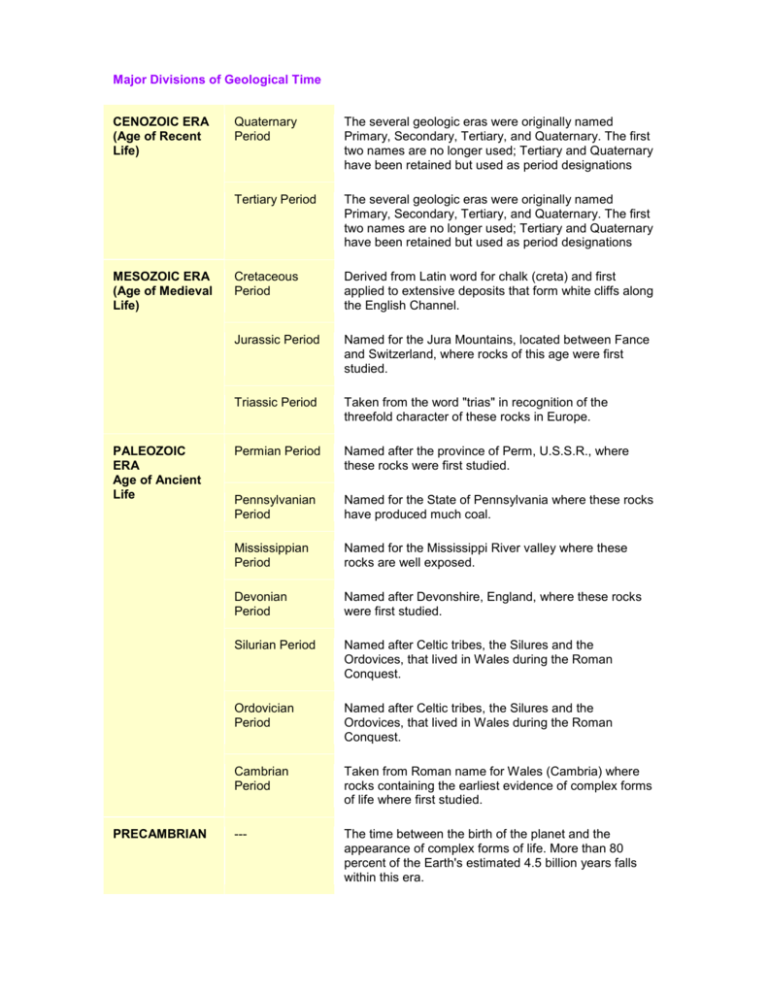
Major Divisions of Geological Time CENOZOIC ERA (Age of Recent Life) MESOZOIC ERA (Age of Medieval Life) PALEOZOIC ERA Age of Ancient Life PRECAMBRIAN Quaternary Period The several geologic eras were originally named Primary, Secondary, Tertiary, and Quaternary. The first two names are no longer used; Tertiary and Quaternary have been retained but used as period designations Tertiary Period The several geologic eras were originally named Primary, Secondary, Tertiary, and Quaternary. The first two names are no longer used; Tertiary and Quaternary have been retained but used as period designations Cretaceous Period Derived from Latin word for chalk (creta) and first applied to extensive deposits that form white cliffs along the English Channel. Jurassic Period Named for the Jura Mountains, located between Fance and Switzerland, where rocks of this age were first studied. Triassic Period Taken from the word "trias" in recognition of the threefold character of these rocks in Europe. Permian Period Named after the province of Perm, U.S.S.R., where these rocks were first studied. Pennsylvanian Period Named for the State of Pennsylvania where these rocks have produced much coal. Mississippian Period Named for the Mississippi River valley where these rocks are well exposed. Devonian Period Named after Devonshire, England, where these rocks were first studied. Silurian Period Named after Celtic tribes, the Silures and the Ordovices, that lived in Wales during the Roman Conquest. Ordovician Period Named after Celtic tribes, the Silures and the Ordovices, that lived in Wales during the Roman Conquest. Cambrian Period Taken from Roman name for Wales (Cambria) where rocks containing the earliest evidence of complex forms of life where first studied. --- The time between the birth of the planet and the appearance of complex forms of life. More than 80 percent of the Earth's estimated 4.5 billion years falls within this era.
